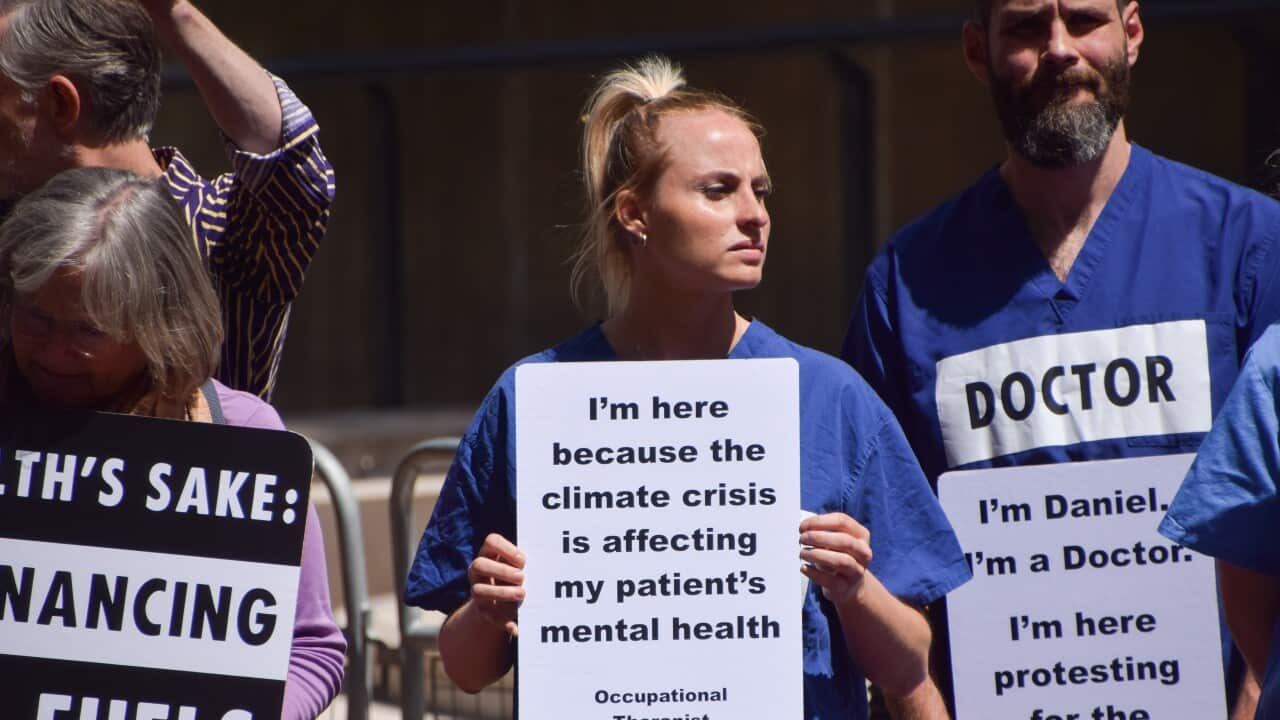Researchers and advocates have called for more funding to tackle lengthy wait times for mental health treatment, after the 2021 Census revealed one in 12 Australians reported suffering from a long-term mental health condition.
Poor mental health was the most common long-term health condition suffered by Australians in 2021 with 2,231,543 people, followed by arthritis (2.15 million) and asthma (2.07 million).
Black Dog Institute clinical researcher Peter Baldwin told SBS News that wait times for mental health treatment were "alarming".
"The last two years have placed Australians under enormous strain, so we would expect an increase in mental distress," he said.
"What is alarming is that the 2.2 million Australians reported on in the Census are suffering long-term mental illness.
Mr Baldwin said a major factor was an "under-resourced mental health system".
"Even if people can afford care, they are waiting a very long time to see someone. And if they can’t afford care, they have to wait until they are very sick before they qualify for community services," he said.
"We need much more investment in the training of mental health experts, like psychiatrists and clinical psychologists, and much more funding for community-based care."
Minister for Health Mark Butler said the Albanese government "understands the importance of mental health care for Australians".
He added: "We need to make sure we have the right resources in place so Australians can get the care they need."
Professor Maree Teesson and research program officer Scarlett Smout from The Matilda Centre said delays in accessing mental healthcare treatment needed to be addressed, but also underlined the importance of macroeconomic factors which can drive mental illness.
"Waiting lists are routinely over 12 months to see a psychologist or psychiatrist around the country – we clearly need to strengthen the mental health workforce – but the issues impacting Australians’ mental health extend beyond just wait times," Professor Teesson said.
"The Matilda Centre and Australia’s Mental Health Think Tank ... have recommended the urgent implementation of a addressing key drivers of mental ill-health: economic inequality, social disconnection and shortfalls in the mental healthcare sector."
Ms Smout said that while the number of 2.2 million may seem high, the real figure is likely even higher.
"These are just those reporting they have been diagnosed with a mental illness, so it’s likely that the number of people experiencing a mental illness who haven’t sought help is substantially higher – the most recent National Survey for Mental Health and Wellbeing indicated that this was around one in five [Australians]," she said.
They called on the federal government to implement recommendations made by Australia's Mental Health Think Tank to tackle mental ill-health among young Australians
These include increasing income support payments to Coronavirus Supplement levels, introducing grants to tertiary education and training, and doubling Commonwealth-supported places for mental health professions.
A spokesperson for Beyond Blue said the pandemic has fuelled poor mental health, and suffering Australians should not hesitate to contact mental health services.
“The 2021 Census data gives us a unique snapshot into the lives of Australians during the COVID-19 pandemic," a spokesperson said.
"We know that people have been through a really tough time over the last couple of years - dealing with uncertainty, loneliness, disruption to their routines and worrying about catching COVID have understandably had a real impact on many people’s mental health.
"Over this time, some of the most common issues people raised with us have included anxiety, depression, family/relationship issues, isolation and concern about coronavirus symptoms.
"For some these issues will be ongoing – we encourage them to reach out for support. It’s never too early or too late to get support and you don’t have to know exactly why you’re calling - we’ll step you through it.”
This is the first time the Census has collected information on diagnosed long-term health conditions, and Australian statistician Dr David Gruen said the data will help the country make national healthcare decisions.
“For the first time, we have data on long-term health conditions across the whole population. This is critical data to inform planning and service delivery decisions about how treatment and care is provided for all Australians," Dr Gruen said.
"Census data will help provide a more detailed picture of Australians’ health. Census data complements existing ABS health surveys by providing additional insights about the communities that require services to support complex health needs”.
Dr Gruen said mental health conditions were most common among young adults.
Readers seeking support with mental health can contact Beyond Blue on 1300 22 4636. More information is available at . supports people from culturally and linguistically diverse backgrounds.











